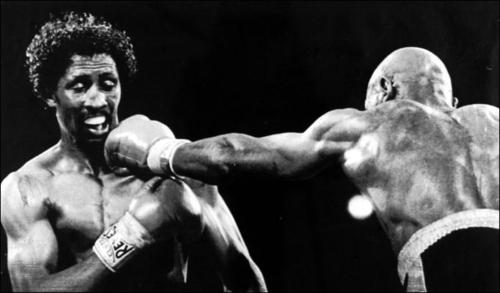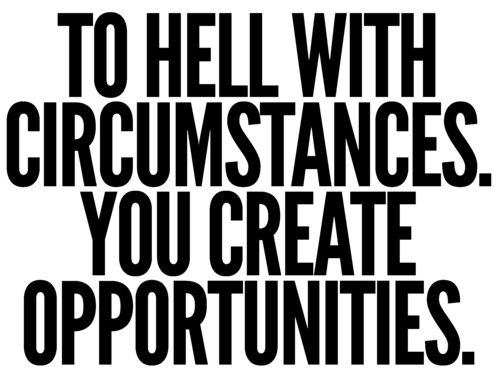Ordway Letter
As per the last post:http://wp.me/p1PgpH-WS, I mentioned signing up for a free newsletter at pcordway@gmail.com.
Below is an example of his letter. His reading list on value investing is comprehensive. My suggestion is to read the Intelligent Investor by Graham, then Margin of Safety (posted on this blog and in the Value Vault) several times to understand the mindset of a value investor, then move onto the Buffett readings. Question and reread. Study accounting and competitive advantage while perusing annual reports of companies that interest you. If you don’t understand something, then try to find the answer through sleuthing. Practice THINKING INDEPENDENTLY (The experts don’t know the future either!) Apply principles to specific examples, that is why this blog emphasizes case studies.
Be patient. If it was easy, then the rewards wouldn’t be there. Competence will begin to appear in five or six years of intensive study and perhaps expertise after ten to fifteen years. I am still a student after 25 years with a long journey ahead.
An analysis on Share Repurchases: MauboussinOnStrategy_–_ShareRepurchaseFromAllAngles_June_2012
Bearish_on_Brazil I worked in Brazil, and the problems come down to abuse of property rights and poor laws and institutions. Don’t be fooled.
Suggested reading material or any other commentary is always welcome — just send me an email. I hope everyone is doing well and has a great 4th of July holiday next week.
Quoted
- “Former Treasury Secretary Henry Paulson said the U.S. will emerge relatively unharmed from the debt crisis in Europe as efforts by Greece, Spain and other nations to stabilize their economies persist for the long-term. ‘Although Europe is a drag, the U.S. will continue to muddle along with growth that really isn’t enough to make a dent in employment,’ Paulson…said at a [June 19] biotechnology industry conference in Boston. Europe will eventually stabilize and avoid a ‘catastrophic outcome,’ he said, [but] under the best circumstances, ‘this will drag on over time.’” (Source: Bloomberg)
- Regarding the outlook in Europe: “I’m sure of three things. I don’t know what’s going to happen; nobody else knows what is going to happen; and all the experts are predicting different outcomes so 90% of them must be wrong, if not 100%. It is a folly to listen to anyone who says they know what is going to happen and make investments on that basis.” — Howard Marks*
- * Remarks delivered at a conference in New York on June 12, 2012. Any misattributions or mistakes are my own. Further comments are paraphrased as follows: Europe will probably get by, with the governments — namely Germany — doing the bare minimum. But there is certainly a non-zero chance of of something very bad happening. Either way, Europe in general is a huge mess and will likely remain so for years. The wall of worry in today’s market is well deserved; the litany of macro concerns prevalent today may be the most extreme in my or anyone’s career, but they also have existed for years — we just weren’t focusing on them. The riskiest thing in the world is a lack of belief in the presence of risk in the market; that is certainly not the case today. Act cautiously; insist on value and safety. Low-priced, well-capitalized corporate assets are — as always — the best options in this environment.
Facts and Figures
- In the past six years, the balance sheets of the world’s eight largest central banks have more than tripled (in dollar terms) from $5.4 trillion to $15+ trillion. (Source: Bianco Research)
- Coca-Cola will return to Myanmar (Burma) for the first time in 60 years. The only two countries left in the world without Coke will then be Cuba and North Korea. (Source: Bloomberg)
- “From 1985 through 2011…for every dollar spent in [capex, M&A, dividends and buybacks], roughly $0.55 went to capital spending, $0.27 to M&A, and $0.18 to dividends and buybacks.” (Source: Michael Mauboussin — see attached; note: dividends and buybacks were about equal at ~9% each)
- In the past 10 years, dividends and M&A have remained about the same (~9% and ~26%, respectively), while capex has fallen to 50% and buybacks have climbed to 14%. In the last five years, the trend is even clearer: still almost 9% in dividends, only 43% in capex, 16% in buybacks and 32% in M&A
Attachments
- Reading List — A couple of friends asked for this recently, so I thought I’d send it around in case you’re looking for some good reading material this summer. The “top 100” and groupings are just my opinion — there should be something for everyone on this list, and hopefully some new or overlooked books or articles. Please let me know if you have any suggestions or corrections to the list.
- “Share Repurchases from All Angles” — An excellent article from Michael Mauboussin offering some clear-headed thinking on share buybacks.
- “Bearish on Brazil” — A great debate about Brazil’s economic prospects. The attached is an essay in Foreign Affairs adapted from the author’s new book Breakout Nations: In Pursuit of the Next Economic Miracles. I haven’t read the book yet, but the essay is interesting. The author, who is head of Emerging Markets and Global Macro at Morgan Stanley Investment Management, explores Brazil’s lofty reputation as a growth market and attributes most of the successes to a heavy reliance on rising commodity prices driven by Chinese demand. The author also believes Brazil has a “hidden cap” on growth — due to high interest rates, inflationary feedback, uncompetitiveness, an overvalued currency, chronic government overspending and misinvestment, lack of productivity growth, and a lack of investment in anything other than a welfare state — that will be exposed as commodity demand/prices weaken.
- Here is a series of rebuttal essays, including a response by the author, with many excellent points and counterpoints.
- For more on Brazil’s horrendous education system see here, here and here.
Books
- Hedge Fund Market Wizards — Jack Schwager has just released the fourth book in his Market Wizards series. I’ve read the others, which began more than 20 years ago, and this one is the best yet. They’re all focused more on “trading” than “investing,” and some of the trade-y stuff really makes me cringe, but even the staunchest Grahamite still has something to learn here. In particular, Schwager’s interview with Edward Thorp is excellent — that material alone would make a great book.The only overlap with The Alpha Masters is a chapter on a Ray Dalio, which is longer and more detailed in Schwager’s book. And if nothing else, Schwager’s interview with Joel Greenblatt gives this book all the credibility it needs. Highly recommended.
- An interview with the author by Opalesque (via a great blog) is here.
Links
- “Debunking the Myth of Intuition” — A great interview with Prof. Kahneman on a range of topics.
- Julian Robertson Interviewed on Bloomberg TV — A rare interview with Julian Roberston. Topics include hedge funds and investment strategy, Europe and the debt crisis, and American politics.
- “The Five Mega-trends Shaping Tomorrow’s Customers” — An op-ed by Coca-Cola CEO Muhtar Kent about the key forces driving the world’s consumers.
- “The Formula That Killed Wall Street? The Gaussian Copula and the Material Cultures of Modelling” — Don’t let the title scare you.
- “Why I’m Betting Big on Europe” — A profile of David Herro and his investments in European banks. Regardless of an opinion on the merits of these investments, this is certainly not a mutual fund manager with any fear of a little tracking error!
- For another contrarian, check out this guy investing solely in Greek equities.
- “The State of the Nation’s Housing” — The latest annual report from The Joint Center for Housing Studies of Harvard University. I’ve always found this report to be one of the very best ways to understand the conditions in the housing industry (and it’s free!). This year’s press release reads: ““While still in the early innings of a housing recovery, rental markets have turned the corner, home sales are strengthening, and a floor is beginning to form under home prices. With new home inventories at record lows, unless the broader economy goes into a tailspin, stronger sales should further stabilize prices and pave the way for a pickup in single-family housing construction over the course of 2012.”
- “This is Your Brain on Bargains: JC Penney and the Curse of Discounts” — An interesting look at consumer behavior, the history of coupons and discounts, and the potential impact on JCP’s strategy.
- “Shatel Q&A: Friendships are Buffett’s Sport Riches” — Speaking of Michael Lewis (see below), I thought Moneyball was a pretty good book. In this interview, which is more of a curiosity than anything else, Buffett said in response to a question about sports figures asking for advice from him: “I get a lot of them that just want to talk. Billy Beane called. He’s a Berkshire shareholder. He was running the A’s. He was running them like Berkshire, he thought. There’s a fair number of them who are shareholders.”
- “In Insider and Enron Cases, Balancing Lies and Thievery” — I think this is a really interesting debate. And this essay is amazing — the lead Enron prosecutor walks through a very honest assessment of the case; admits that it had “fundamental weaknesses” and that Skilling “took steps inconsistent with alleged criminal intent”; and states that his trial strategy breakthrough came after watching the movie based on Bethany McLean’s outstanding book The Smartest Guys in the Room (which is highly recommended, by the way).
Articles
- Remarks at the Festival of Economics — A recent speech by George Soros in which he outlines his theory of reflexivity and his thoughts on the euro/EU crisis. It’s long and a little dense — and the reflexivity stuff certainly isn’t new — but there are worthwhile thoughts and analysis in here if you wade through it. And here and here are other Soros articles on the topic.
- “Don’t Eat Fortune’s Cookie” — Michael Lewis’s recent speech to the graduating class at Princeton. I have mixed emotions on his articles and books — I love some of them, others not so much — but in the spirit of the recently passed graduation season, this is worth a quick read. Other commencement links:
- Dr. Michael Burry at UCLA — Burry’s commentary on his career and investments, including “the big short,” and his overall outlook for the future (which is largely pessimistic). It starts slow but is very worthwhile.
- Failure and Rescue — A commencement address by Atul Gawande of The Checklist Manifesto fame.
- Cory Booker at Stanford — transcript and video. Future President?
- For another angle, I thought this was great: Wellesley English Teacher To High School Graduates: “You Are Not Special.”
- “Unequal Shares” — A look at dual-class share structures and public company governance in light of the recent Facebook IPO. A recent issue of The Economist also looked at the possible demise of the public company, which obviously a bit of hyperbole but has some worthwhile thoughts behind it.
- “Not So Expert” — A column in The Economist about psychological biases and financial decisions. “The need for financial advice may be more psychological than practical.”
- NYSE CEO: Public Has Lost Trust in Market — I think there is something to the NYSE’s side of the argument. And much like the move from private partnerships to publicly-traded corporations, I would view the exchanges’ decisions to IPO as a seminal moment in the evolution of the environment we have today.


